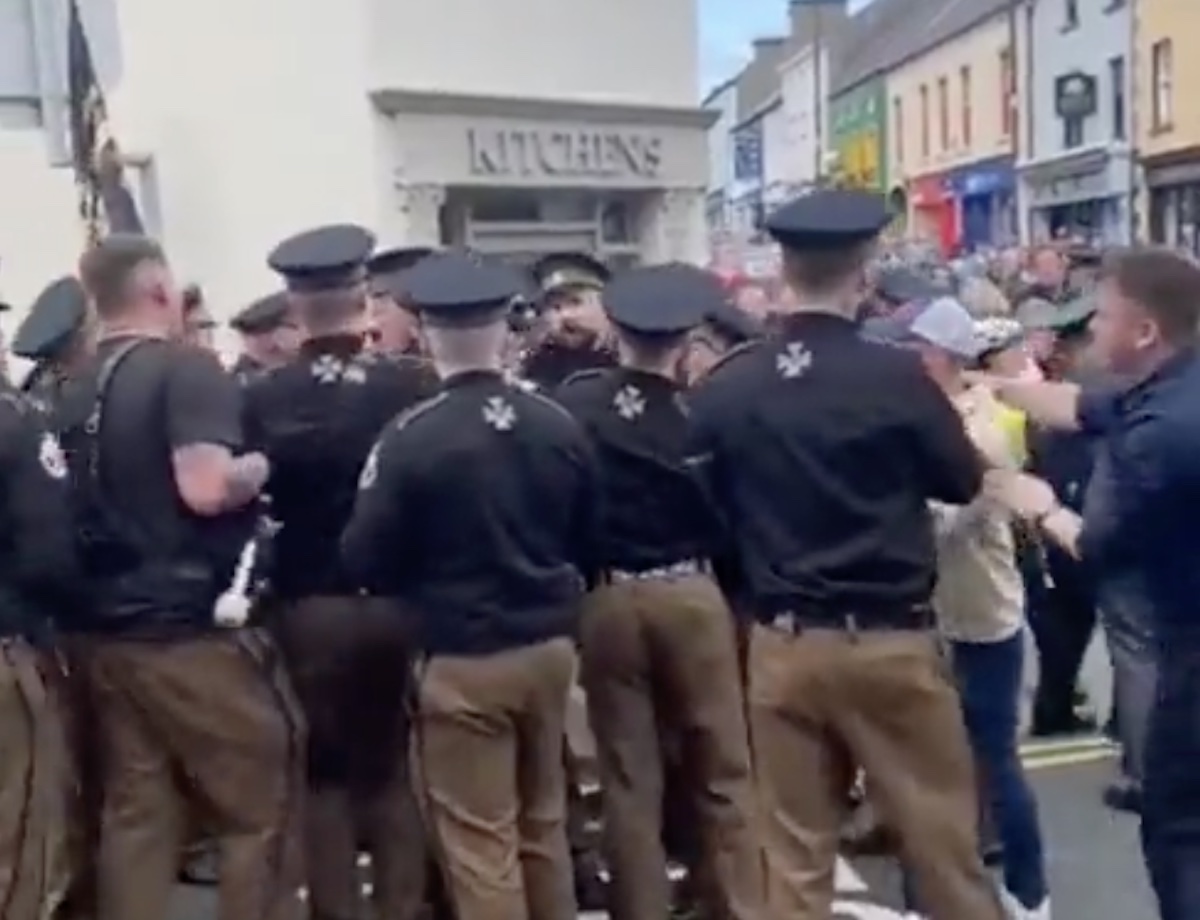
A nationalist residents’ group has criticised attempts by the anti-Catholic Orange Order to reignite 25-year-old tensions over sectarian marches down the Garvaghy Road in Portadown, County Armagh.
Members of the Protestant Masonic order staged a protest on Sunday after being refused permission to march from Drumcree church down the nationalist Garvaghy Road, a march that was strongly opposed by residents and caused huge and fatal conflagrations in the late 1990s.
Breandán Mac Cionnaith, spokesperson for the Garvaghy Road Residents’ Coalition, said people had “moved on,” and the Portadown branch of the Orange Order needed to reflect on the effect the dispute had on the community.
“There has been an entire generation that has grown up in this community who were only born 1995 onwards. They have now reached adulthood without having had the experience of their parents and grandparents,” he said.
“Everybody else has moved on, with the exception of Portadown District.
“The Orange Order has to reflect on the hurt, damage, and pain that their activities and the activities of their supporters caused to this community.
“They want to reflect on the number of people who died in relation to Drumcree, which could be attributed to the actions of those paramilitaries who acted in support of the Orange Order’s stance on Drumcree.
“The Orange Order has an alternative. That alternative has been there for the last 25 to 30 years. They can parade to Drumcree and parade back again by the same route. It’s not the hardest thing in the world to do.”
From 1995, the residents used sit-down protests to block the parade, but the PSNI (then RUC) brutally forced it through. Ultimately the parade was banned from returning along the Garvaghy Road, but in loyalist violence in 1998, brothers Jason (8), Mark (9), and Richard Quinn (10) died after their home in Ballymoney was petrol bombed by a loyalist gang. The following year, the Garvaghy Road Residents’ Coalition’s legal advisor, Rosemary Nelson, was killed by an under-car bomb.
Despite the relative peace that has ensued over the issue since, Orange Order members on Sunday held protests at the police lines barring them from the return route. The order’s ‘grand secretary’ Mervyn Gibson insisted their protest would continue. Standing close to the police line, Gibson said the scene brought back fond memories.
“It’s great but also sad to see that brethren have been standing here for 25 years – 25 years and everybody thinks it’s sorted,” he said.
“Recent interviews on the radio, I was told ‘this is sorted,’ I assured them it wasn’t sorted, and that brethren would remain here until there is a resolution.”
While the main Twelfth events took place without major incident, there were angry scenes in the predominantly Catholic seaside town of Ballycastle, County Antrim when a nationalist resident was attacked by marchers from the controversial ‘Silver Plains’ loyalist band (pictured).
And last week, a 500-meter-long steel wall was again erected to separate the nationalist Short Strand from an Orange Order parade in east Belfast.
Parade disputes could recede, however, as reports indicate that the Orange Order is planning to reduce the number and scale of its marches in Belfast, sticking to a less controversial route and using an approved bands register that would help prevent offensive behavior from occurring in the future.
![[Irish Republican News]](https://republican-news.org/graphics/title_gifs/rn.gif)
![[Irish Republican News]](https://republican-news.org/graphics/title_gifs/harp.gif)

